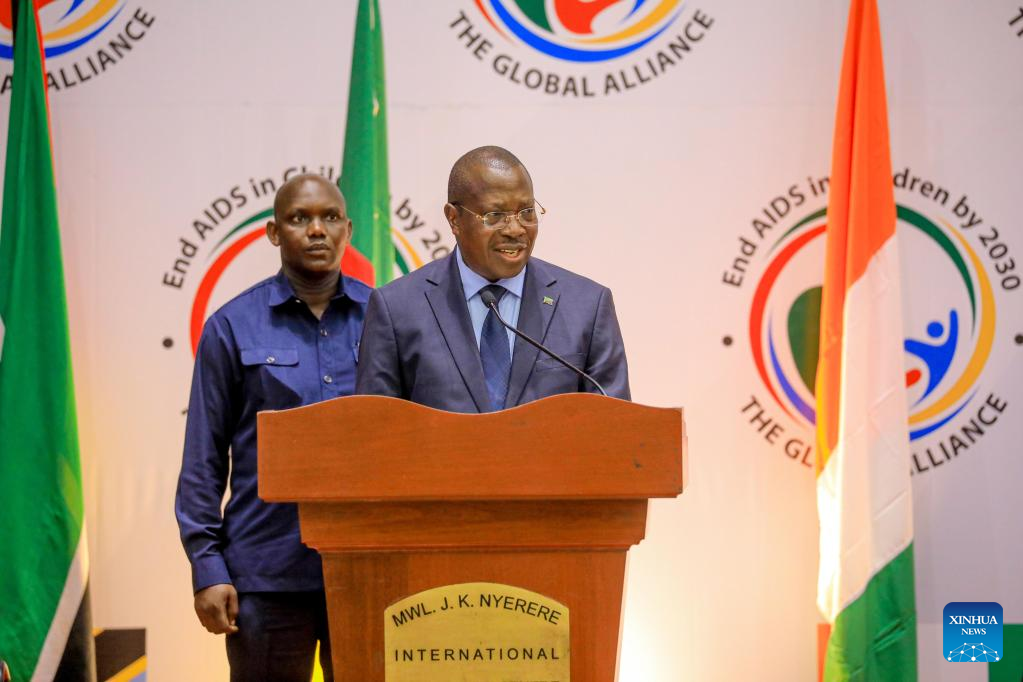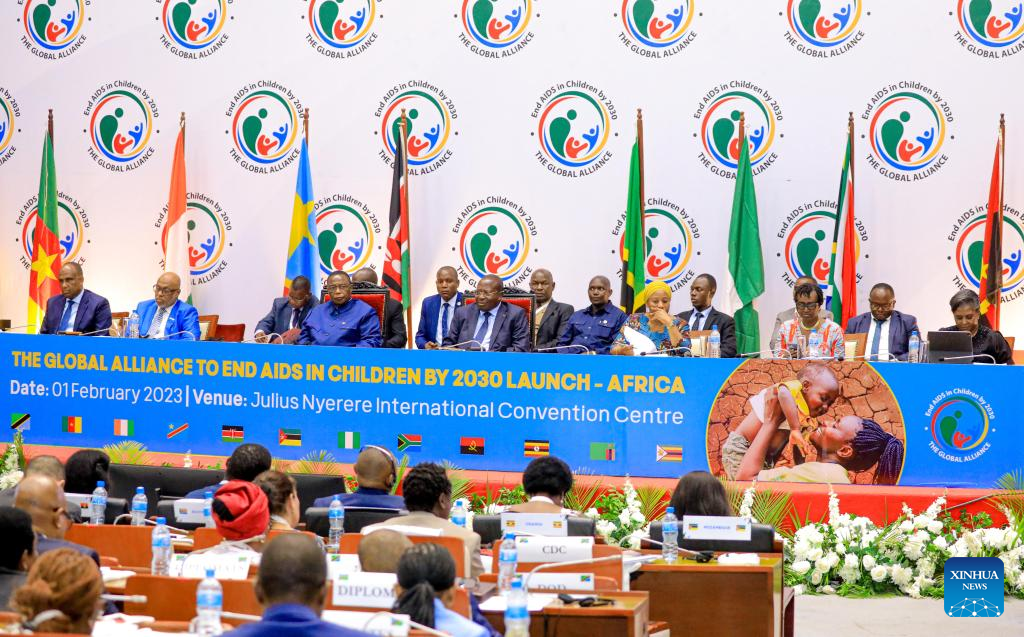African leaders urged to renew commitment to ending AIDS in children by 2030

Tanzanian Vice President Philip Mpango (Front) speaks at the ministerial launch of the Global Alliance to End AIDS in Children by 2030 in Africa in Dar es Salaam, Tanzania, on Feb. 1, 2023. Tanzanian Vice President Philip Mpango on Wednesday urged African leaders to demonstrate their leadership by renewing their commitment to ending AIDS in children in the continent by 2030. (Office of Vice President of Tanzania/Handout via Xinhua)
DAR ES SALAAM, Feb. 2 (Xinhua) -- Tanzanian Vice President Philip Mpango on Wednesday urged African leaders to demonstrate their leadership by renewing their commitment to ending AIDS in children in the continent by 2030.
Opening the ministerial launch of the Global Alliance to End AIDS in Children by 2030 in Africa at the Julius Nyerere International Convention Center in Dar es Salaam, Mpango said "we must not remain complacent as 2030 is at our doorstep."
He thanked the Joint United Nations Programme on HIV/AIDS (UNAIDS), the United Nations Children's Fund (UNICEF), the World Health Organization (WHO), and other international partners for initiating this new alliance that aims to address one of the most evident gaps in the fight against AIDS.
Twelve African countries have joined the alliance in the first phase. They are Angola, Cameroon, Cote d'Ivoire, the Democratic Republic of the Congo (DRC), Kenya, Mozambique, Nigeria, South Africa, Tanzania, Uganda, Zambia, and Zimbabwe.
Representatives from the 12 African countries committed themselves and laid out their plans to end AIDS in children by 2030 as international partners set out how they would support countries in delivering on those plans, which were issued at the first ministerial meeting of the Global Alliance to end AIDS in children in Montreal in Canada in Aug. 2022.
"This meeting has given me hope. An inequality that breaks my heart is that against children living with HIV, and leaders today have set out their commitment to the determined action needed to put it right," said Winnie Byanyima, executive director of UNAIDS.
"We cannot let children continue to be left behind in the global response to HIV and AIDS. Governments and partners can count on UNICEF to be there every step of the way," said UNICEF Associate Director Anurita Bains.
The Global Alliance to End AIDS in Children by 2030 in Africa is aimed at advocating and mobilizing political commitment and resources to ensure action and accountability around shared targets and commitments.
According to the UNAIDS fact sheet, currently around the world, a child dies from AIDS-related causes every five minutes. The fact sheet also says 160,000 children were infected with HIV in 2021.

Delegates attend the ministerial launch of the Global Alliance to End AIDS in Children by 2030 in Africa in Dar es Salaam, Tanzania, on Feb. 1, 2023. Tanzanian Vice President Philip Mpango on Wednesday urged African leaders to demonstrate their leadership by renewing their commitment to ending AIDS in children in the continent by 2030. (Office of Vice President of Tanzania/Handout via Xinhua)
Photos
Related Stories
- Africa seeks mutual partnership rather than big brother influence, experts say after U.S.-Africa summit
- UN children's agency appeals for 1 bln USD to help children in Horn of Africa in 2023
- UN General Assembly president says goal to end AIDS by 2030 "badly off track"
- Horn of Africa facing unprecedented drought emergency with catastrophic outcomes: UN report
- Digitalization key to Africa's development: UN official
Copyright © 2023 People's Daily Online. All Rights Reserved.









